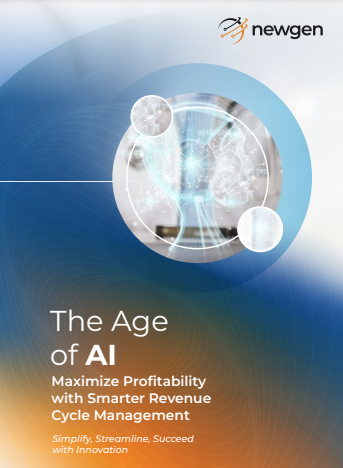Why Revenue Cycle Management Is Critical for Healthcare Sustainability?
The financial health of hospitals, health systems, and accountable care organizations (ACOs) depends on how effectively they manage their revenue cycle from the moment a patient schedules an appointment to the time the final payment is collected. Yet, for many providers, this cycle is still riddled with manual workflows, inefficiencies, and compliance risks that drain revenue and increase administrative burden.
According to the Journal of Healthcare Leadership (2023), automating just ten transactions could save the U.S. medical industry over $22 billion annually. For providers, this means more resources to invest in patient care, advanced clinical systems, and innovation while safeguarding profitability.
The Current Challenges in RCM
Manual RCM processes create significant operational friction and financial leakage. Providers struggle with:
- Manual claims and encounter logging causing delays, errors, and unrecovered payments.
- Slow denials and appeals management missed follow-ups lead to revenue loss.
- Compliance complexity changing payer policies and regulatory rules increase audit risks.
- Burnout and administrative overload high-volume manual work strains staff and lowers productivity.
- Limited real-time visibility fragmented systems delay decision-making and insights.
In fact, denial rates for in-network claims can reach 17% overall, and one in ten providers lose more than $2 million annually due to denials and appeals delays.
Why Automation Is the Game-Changer?
A modern, automated RCM solution helps healthcare organizations:
- Streamline end-to-end claims, complaints, appeals, and grievances (CCAG) workflows
- Reduce human errors and manual intervention while increasing throughput
- Ensure compliance and audit readiness with rule-based engines and real-time updates
- Boost patient satisfaction by resolving billing issues faster and reducing surprise medical bills
- Improve financial stability with timely revenue recovery and fewer write-offs
By integrating low-code platforms and AI, providers can adapt quickly to changing payer requirements, scale operations, and reduce IT dependency all while keeping control over complex workflows.
Key Capabilities of an Ideal RCM Solution
1. Real-Time Claims Logging & Tracking
- Integrate seamlessly with EMR/EHR systems (EPIC, Cerner, eClinicalWorks, Meditech) to eliminate manual entry errors.
- Ensure instant updates on claims and encounter data for faster approvals and fewer missed deadlines.
2. Intelligent Case Assignment
- AI algorithms categorize claims by status (denied, pending, in review) and auto-route them to the right teams.
- Reduce triaging time and handle high-volume data without bottlenecks.
3. Automated Denials & Appeals Management
- Pre-configured templates simplify appeal preparation.
- AI identifies denial trends, enabling preventive action and reducing future denials.
- Automated workflows accelerate resolution and recovery.
4. Digital Documentation Management
- Securely store and version supporting documents (explanation of benefits, clinical reports) for compliance and easy access.
- Maintain a clear audit trail with the latest approved versions.
5. Analytics-Driven Recovery
- Real-time dashboards show recovery status, denial trends, and performance insights.
- Predictive analytics highlight high-revenue recovery opportunities.
6. Compliance Assurance
- Embedded rules engines ensure adherence to payer and regulatory standards.
- Automated reporting simplifies audits and reduces risk of penalties.
NewgenONE for Healthcare AI-Powered RCM Transformation
NewgenONE, the AI-enabled low-code digital transformation platform, empowers providers to optimize their entire revenue cycle by:
- Automating CCAG workflows end to end for faster processing.
- Delivering real-time insights and predictive analytics to reduce denials and boost recovery rates.
- Offering low-code agility to customize workflows without heavy IT involvement.
- Ensuring audit readiness and compliance confidence with secure, automated records.
- Enabling scalable operations with seamless EMR/EHR integrations and future-ready architecture.
Proven Business Impact
Healthcare organizations using Newgen’s RCM solutions report:
- Faster claim resolution and reduced turnaround times.
- Higher appeals and denial recovery rates, improving financial performance.
- Lower manual workload, reducing burnout and enhancing productivity.
- Stronger compliance and fewer penalties through automated audit trails.
- Scalable, flexible operations with quick customization for evolving needs.
Use Cases in Action
- Real-Time EMR Integration: Providers eliminate delays and data duplication with API-driven real-time updates from systems like EPIC.
- Predictive Denial Management: AI models proactively identify and flag high-risk claims, enabling early action and reduced revenue leakage.
- Simplified Appeals Process: Automated denial tracking and pre-configured templates help staff resolve issues up to 50% faster.
- Compliance-First Operations: Rule-based engines automatically adapt to new payer policies and regulations, ensuring audit-readiness at all times.
Why Act Now?
Healthcare leaders who delay automation risk increasing revenue leakage, staff burnout, and compliance penalties. Meanwhile, forward-thinking providers are using AI and low code to transform RCM into a competitive advantage turning what was once a cost center into a growth driver.
Begin Your RCM Transformation
If your RCM processes still rely on manual tracking and fragmented workflows, now is the time to modernize.

